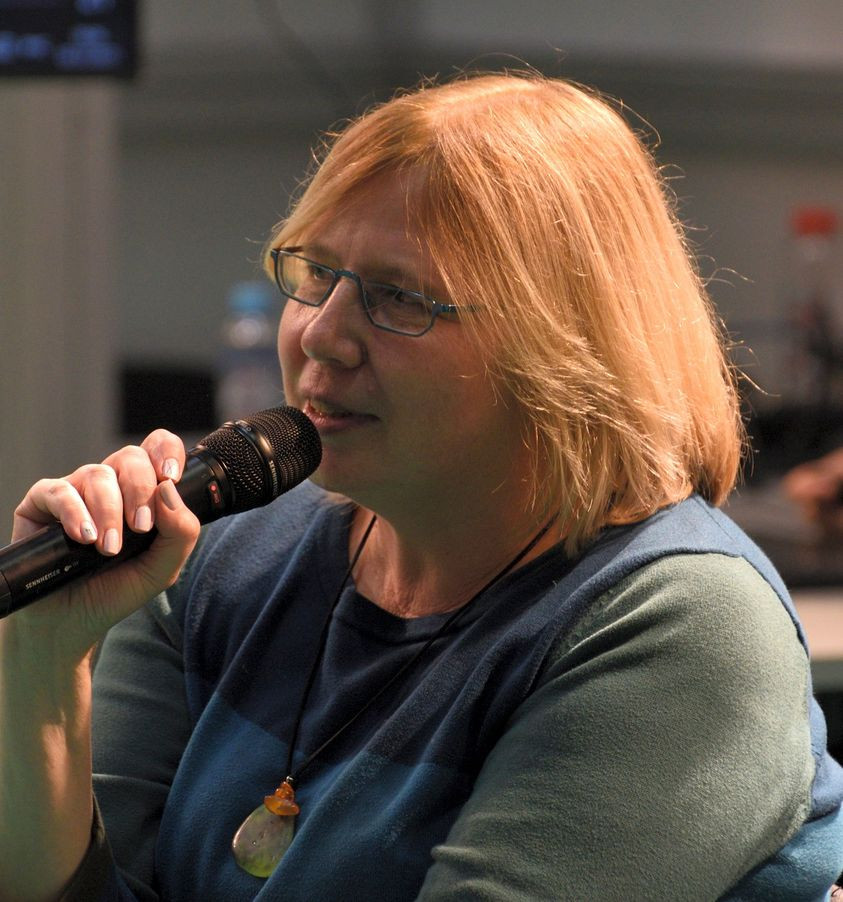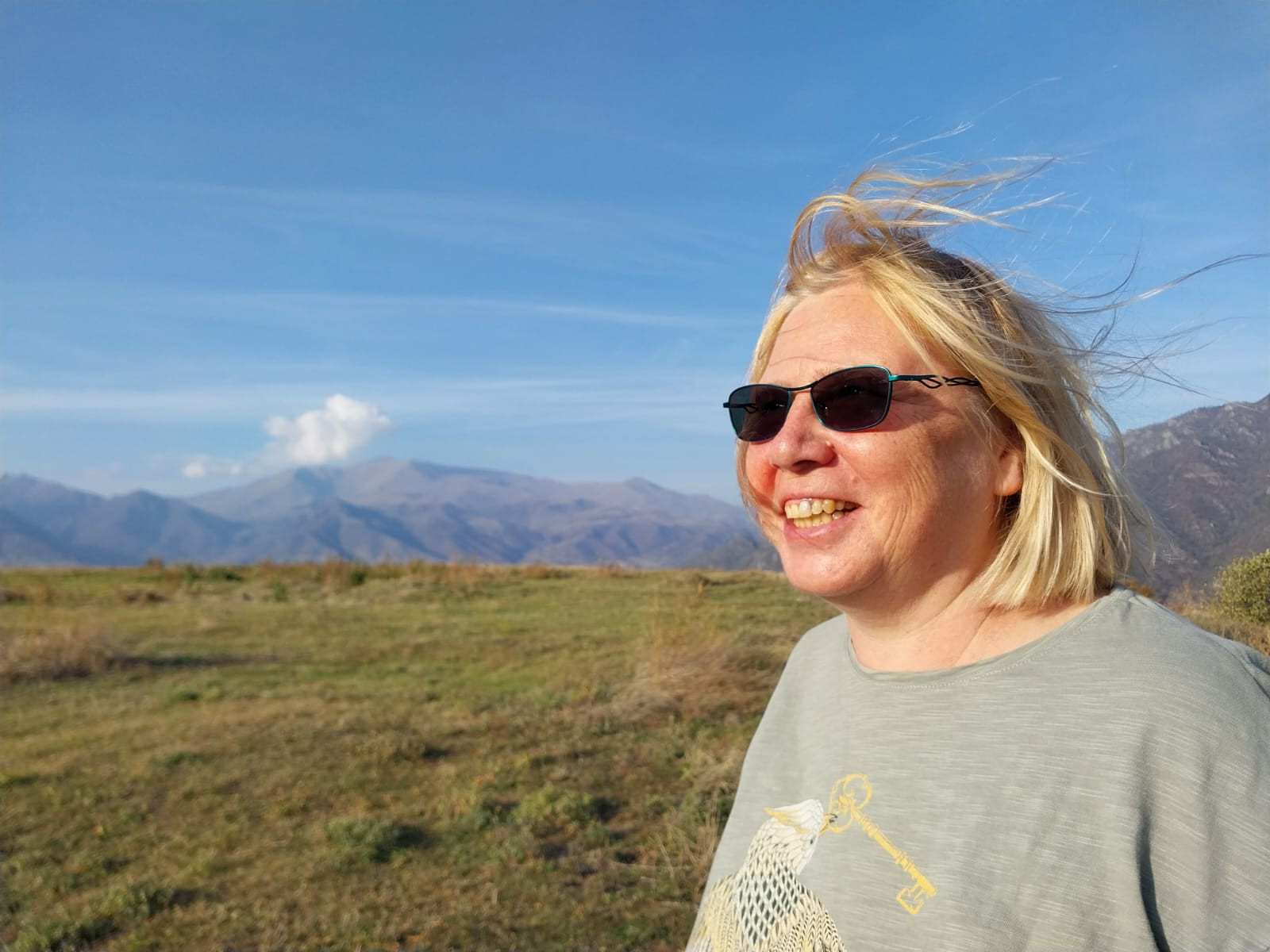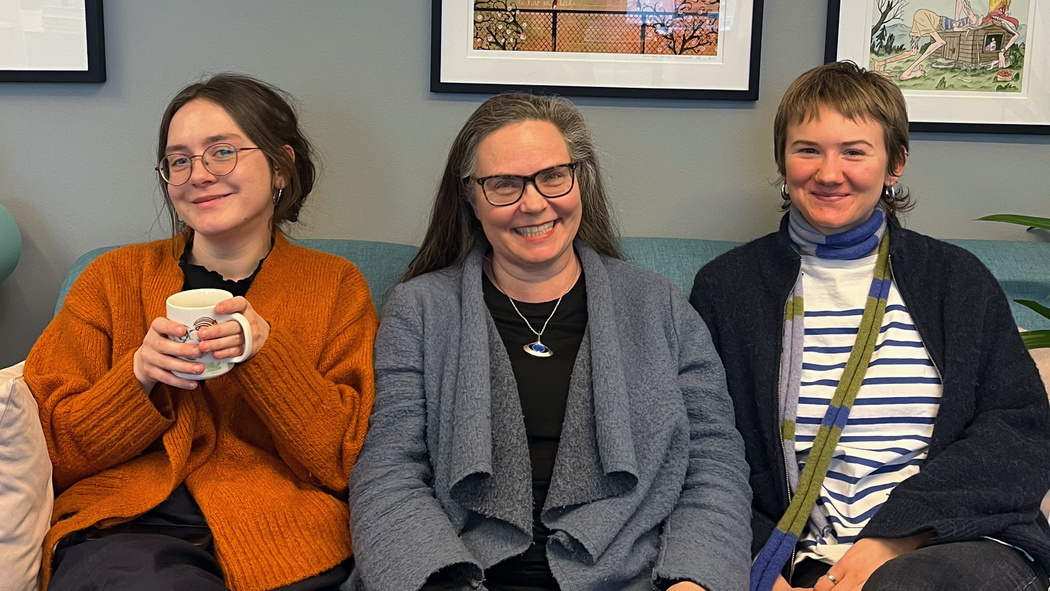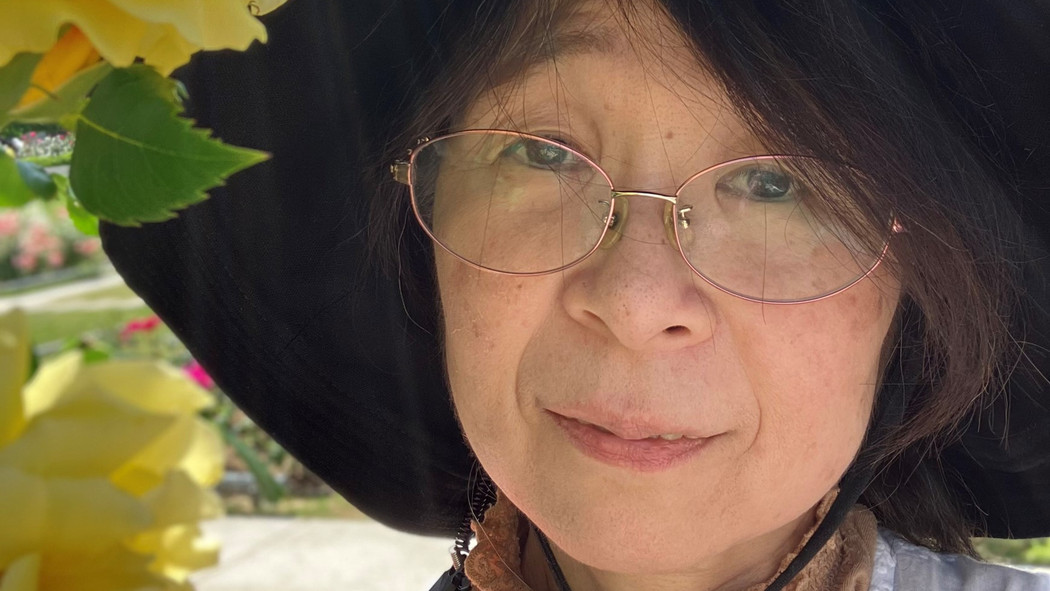Olga Drobot - Translator of the Month
Our Translator of the Month for August is Olga Drobot, who translates from Norwegian to Russian full-time. Among the many authors she has translated, are Henrik Ibsen, Per Petterson, Erlend Loe, Roy Jacobsen, Lars Saabye Christensen, Karl Ove Knausgård, Maria Parr, Rune Belsvik, and Bjørn F. Rørvik. Olga holds a PhD in Nordic literature history from Moscow University. She loves children’s books and is an expert in reading to children. She also participates in the “Ibsen in Translation” project, and has recently helped organize a literature school — “Free Word” — in Armenia.

Olga takes over the Translator of the Month baton from her French colleague Alex Fouillet, He also asked her the following question: “Do you have a special Norwegian book that is close to your heart? If so, why is it special to you?”
In my 2015 Translator of the Month interview, I answered this same question with “Ibsen’s plays”. Now, however, my answer is that I am enchanted by Axel Sandemose’s A Fugitive Crosses His Tracks (original title: En flyktning krysser sitt spor). The novel is an homage to Ibsen’s An Enemy of the People (I must refer to my own doctoral dissertation on this). I know, Alex, that you have translated The Fugitive into French. I both congratulate and envy you. In an interview, you said that this book is “une vache sacrée de la littérature scandinave,” an excellent formulation.
What interests me in this book is the dark side of the Law of Jante (in Norwegian “Janeloven”), conformity, i.e., a dominant and obligatory opinion that no one dares to oppose. Ibsen described in detail how this perception and the “damned compact liberal majority” itself arises. Do you remember the scene in the finale, when no one dares to support Dr. Stockmann because otherwise, they will be canceled by the dreadful and ruthless majority? But the majority is themselves, and therefore, there is no way out. Dictatorships, reprisals, wars begin with this — that an idealist with ideas, often good ideas, wants a little censorship for a short period, just while we fight for an Eden-like future. And then everything ends in catastrophe because without free speech, nothing good will ever come. Sandemose created a brilliant image of how destructive a Big Brother system is for everyone involved and for everyone around them. I tried for many years to find a publisher for this book, but in good times no one is interested in such grim matters, and in hard times it is dangerous to talk about them. But we shall see. I began translating the book for myself so that I could discuss it with my friends, but it goes slowly, in my spare time, so to speak, and I am a little afraid that AI will cancel The Fugitive before I am finished — because someone will surely feel offended by that book.
We know that Olga also generously shares her experiences from decades of translation by organizing courses and workshops for students and potential translators. And so we asked her:
“What are your best tips for someone who wants to become a translator?”
I believe that the ability to recognize when your translation (your own) is not good enough is critically important for becoming a translator (or a writer, or critic). The reality is that a beginner needs to say “yes” to all assignments because you have to start somewhere. But it will be much easier if you like the book because the foundation of our work is respect for the author. And do remember that NORLA can support you generously here. NORLA offers a mentorship scheme for beginners, which means that an experienced translator will discuss your work with you and guide you. It doesn’t get better than this. Using a mentor or editor in the right way is a third extremely important thing. And in my experience, the help of a good editor transforms a brilliant translation into an outstanding one.
A translator must also read extensively in their own language. And double-checking, our most important tool! Use it and take the time you need, and read the finished translation alongside the original before you send the text to the publisher. It pays off to spend an extra day on this because you will, truly, encounter a book with errors throughout your whole life. This is why all professional translators are very suspicious. They are always on alert: isn’t this a quote?, didn’t they mention this on page 3? etc.
I once participated in a FIT (International Federation of Translators) Congress. At breakfast, you could order scrambled eggs, which were made by a young, cheerful guy. There were four frying pans in front of him; he poured the eggs into them and then started scrolling on his phone. But every single time, he managed to put down the phone and stir the scambled eggs only a second before they began to smell burnt. Alongside us stood the vice-president of FIT, and he said thoughtfully: it’s just like this with a translation. The most important thing is to realize that you have a problem before everyone can smell it.
And finally, I must thank NORLA for their eternal help, tips, and support, and I advise all colleagues to take advantage of your expertise. I just have to say, you kind of opened the door to a new world for my seminar participants when you invited my entire translation seminar to attend the Translator’s Pastry Shop (in Norwegian: “Oversetterkonditori”); the participants were so inspired! Or when Andrine came to our translation course. We talked openly about difficult things, deeply and empathetically, and we felt very supported. Thank you and thanks again!

Read more
Learn more about Olga on Books from Norway.
Those of you who understand Norwegian can read her interview in full here.
More about the “Ibsen in Translation” project here.
Other translators interviewed in the Translator of the Month series.


